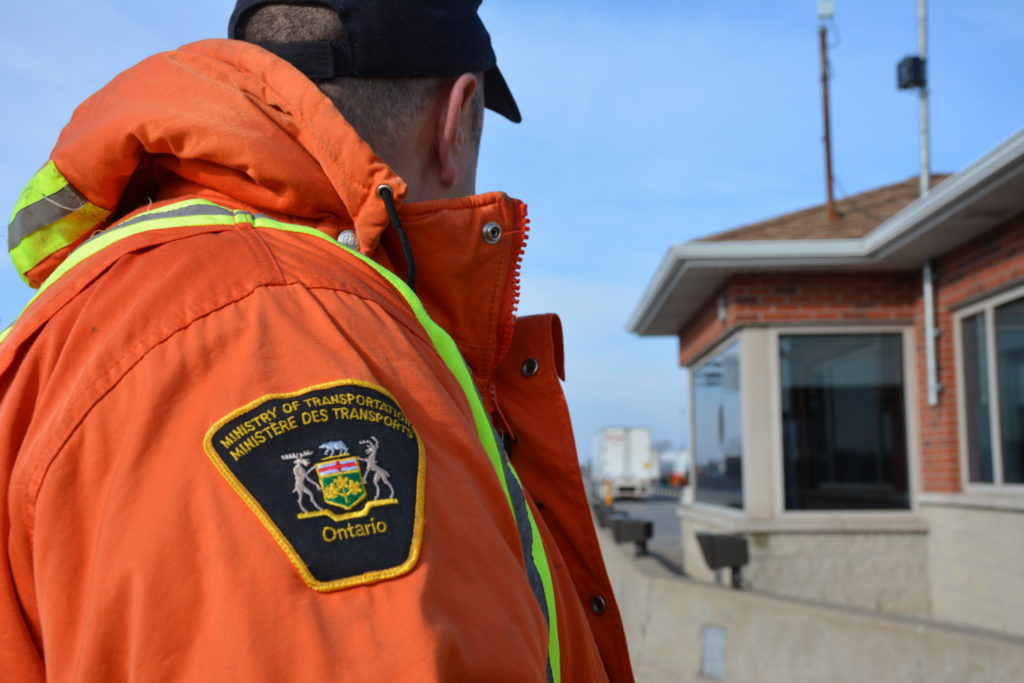OTA welcomes increased powers for MTO enforcement officers
The Ontario Trucking Association (OTA) is welcoming legislative changes that will give Ministry of Transportation (MTO) enforcement officers increased powers.
Specifically, The Safer Roads and Communities Act, gives MTO officers the ability to: exceed posted speed limits for enforcement purposes; confiscate fraudulent or suspended driver’s licences; and requires drivers to yield to enforcement vehicles when their lights and signals are flashing.

“This bill is paving the way by ensuring that enforcement officers have all the necessary powers to keep our roads safe and that our province has the best qualified commercial drivers operating to meet the growing demands of the Ontario supply chain,” said OTA president Stephen Laskowski. “We applaud the government for these changes and for launching industry discussions to identify gaps and meaningful improvements to keep Ontario’s roads safe for everyone.”
“Our board agrees it is time to rethink how commercial driver training and licensing are addressed in Ontario,” added OTA chairman James Steed. “Licensing and training must reflect the safety and vocational standards required to operate a truck. OTA will be providing input that reflects this direction during MTO’s consultations. We need to advance training in the truck driving profession to ensure our sector is eligible for funding that is afforded to other key sectors of the economy when they are training and preparing their labor forces.”
For its part, the Private Motor Truck Council of Canada (PMTC), would like to have seen the province go much further, according to its president.
“The PMTC is supportive of many measures in this proposed legislation, such as increased powers for MTO enforcement officers and increased penalties for impaired and stunt driving,” said Mike Millian.
“We are disappointed to see that the province indicates it will hold stakeholder roundtables to look towards ways to improve enforcement and close gaps on commercial driver training. The PMTC, and many other stakeholders, have consulted with the province on this topic off and on going back five years. Many recommendations have been made by us and others over the last five years that have either been ignored or rejected.
“This topic has been consulted to death, enough with the consultations on this, it is well past the time to act, the PMTC and others have provided recommendations to act on this. It’s time to get off the fence and use the tools suggested to enforce this and put shady schools out of business. We keep talking about what type of fire hose we want to buy while the fire is raging and spreading in the background.”
Have your say
This is a moderated forum. Comments will no longer be published unless they are accompanied by a first and last name and a verifiable email address. (Today's Trucking will not publish or share the email address.) Profane language and content deemed to be libelous, racist, or threatening in nature will not be published under any circumstances.
I’ve seen so called ” truck driving schools” turn out 5 to 6 drivers who are not properly trained and have no business behind the wheel of a big truck. It’s getting worse because of the liberal governments unfettered immigration.